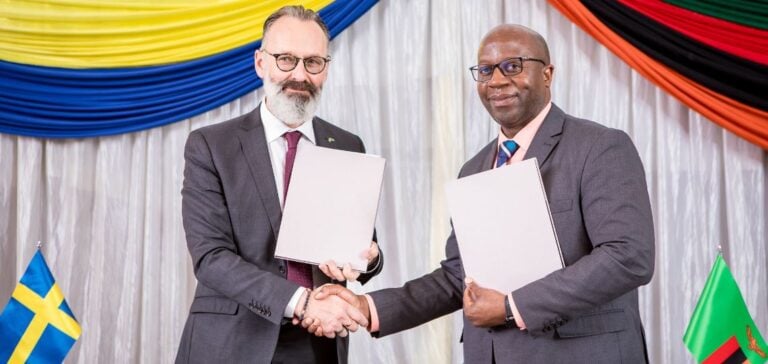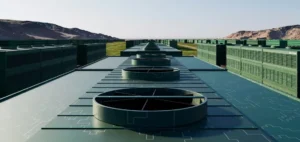Zambia strengthens its climate strategy by signing a memorandum of understanding with Sweden.
This partnership is in line with Article 6.2 of the Paris Agreement, which enables countries to collaborate directly on carbon credit transactions.
This protocol marks a major step forward for Zambia, as it seeks to increase its participation in international carbon markets.
The cooperation with Sweden, a player recognized for its commitment to global climate projects, positions Zambia as a strategic partner in carbon credit trading.
This agreement is not a first for Sweden, which has already forged similar partnerships with other countries such as Ghana and Nepal.
For Zambia, this collaboration offers a platform for developing carbon projects capable of generating credits that can be traded on the international market, while attracting foreign investment in its energy sector.
Progress of the national carbon framework
Zambia ‘s Ministry of Green Economy and Environment is in the advanced stages of approving ten carbon projects, with the aim of structuring its national framework.
These initiatives are aimed at strengthening the country’s position on carbon markets, in line with international requirements.
Since the end of 2022, Zambia has processed 39 project applications, 10 of which are in the process of receiving letters of no-objection, a crucial step for the sale of carbon credits on the global market.
Another key milestone is the completion of the national carbon registry, scheduled for December.
This registry will enable centralized and transparent management of carbon projects, optimizing the monitoring of emissions reductions and the financial impact of local initiatives.
Zambia at the heart of global climate exchanges
Article 6.2 represents a strategic opportunity for Zambia, enabling it to integrate into global carbon credit flows, while strengthening its ability to attract investment in its energy sector.
Cooperation with Sweden, an experienced partner in these transactions, brings an international dimension to Zambia’s efforts.
In conclusion, this collaboration shows that Zambia is ready to play an active role in global carbon markets, based on solid partnerships and well-structured projects.






















